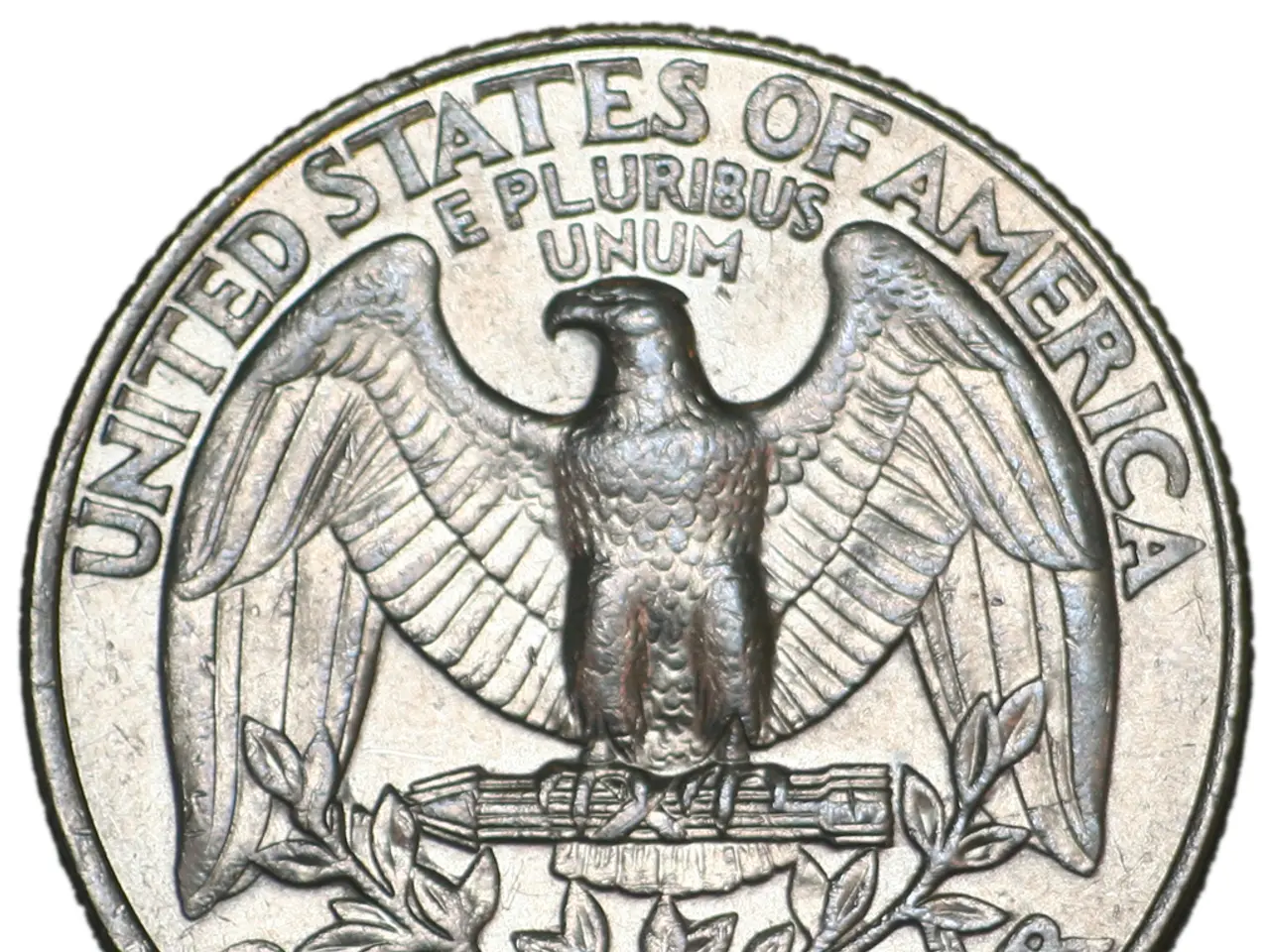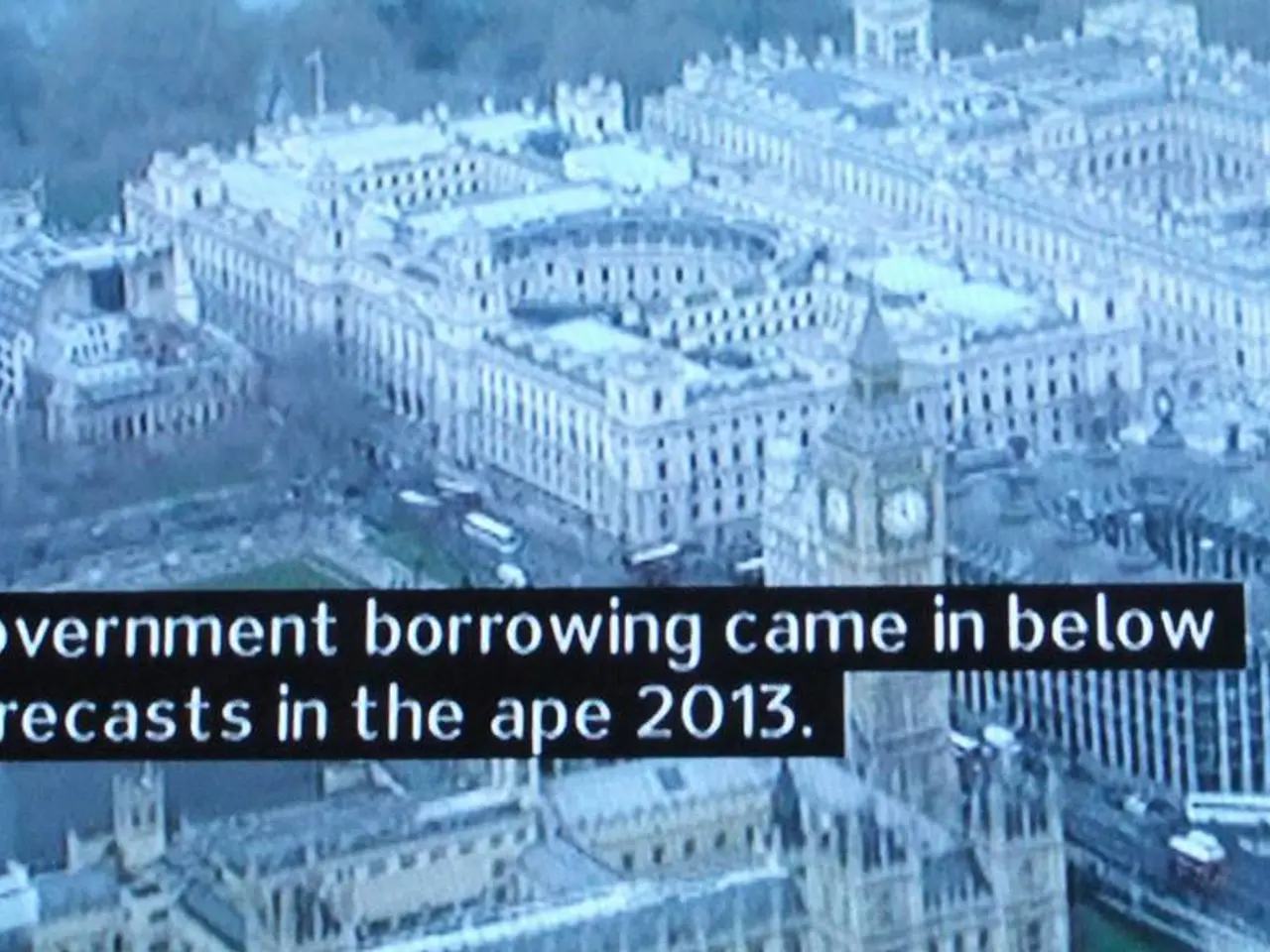Trump intends to personally intervene with business leaders he disapproves of, by making direct phone calls to express his discontent over their decision-making.
Interview with Trump: Tariffs, CEO Calls, and Retail Crisis
In a recent interview with NBC News, President Trump shared his thoughts on his phone call with Amazon CEO Jeff Bezos regarding the company's potential tariff charges following the Trump administration's decision to impose 145% tariffs on China.
According to Trump, Bezos agreed to remove the tariff charge language from Amazon listings after their discussion. He also hinted at using similar tactics with other CEOs in the future if necessary.
Trump's relationship with Bezos seems to have improved since his first term. In December, Amazon donated $1 million to Trump's inauguration fund, and Bezos attended the swearing-in ceremony. Despite stepping down as the company's CEO in 2021, Bezos remains its executive chairman.
The call with Bezos isn't an isolated event. Several major online retailers, like Temu, a low-cost retail site based in China, have already started charging consumers tariff fees. Popular American retailers like Béis, Bare Necessities, and Fashion Nova have urged consumers to shop more in the near term, fearing that future tariffs could force them to raise prices. Larger companies, such as PepsiCo and Procter & Gamble, have also warned shareholders about the impacts of tariffs on their earnings.
Trump defends his decision to impose major tariffs on imports from China, stating that it's not a tax but an incentive for companies to build factories in the United States. However, he acknowledges that tariffs could cause temporary shortages of consumer goods and price increases. He maintains that consumers don't necessarily need an excessive number of items, such as toys or pencils.
In the face of these challenges, retailers are adopting various strategies to weather the storm. Some, like Walmart and Target, are leveraging supplier relationships to mitigate costs, while others are preemptively stockpiling inventory. Logistics providers report a widespread booking freeze as shippers reassess their strategies amid tariff uncertainty. Small retailers, lacking bargaining power, face the brunt of these changes and risk going out of business.
The Trump administration's increased tariffs represent the largest U.S. tax hike since 1993 through tariff revenue, with potential global ripple effects, including inflationary pressures and reduced consumer spending power. As the situation evolves, it remains to be seen how retailers will adapt and how consumers will be affected.
Bezos supposedly agreed to remove tariff charge language from Amazon listings following his discussion with President Trump, according to the interview with NBC News. Business leaders, including those from major retailers like Temu, Beis, Bare Necessities, Fashion Nova, and even larger companies such as PepsiCo and Procter & Gamble, have expressed concerns about the impacts of tariffs on their earnings in the general-news sector. To mitigate costs, retailers like Walmart and Target are leveraging supplier relationships, while others are preemptively stockpiling inventory. Trump defends his decision to impose tariffs on imports from China, stating that it's not a tax but an incentive for companies to build factories in the United States, despite acknowledging potential temporary shortages of consumer goods and price increases.






